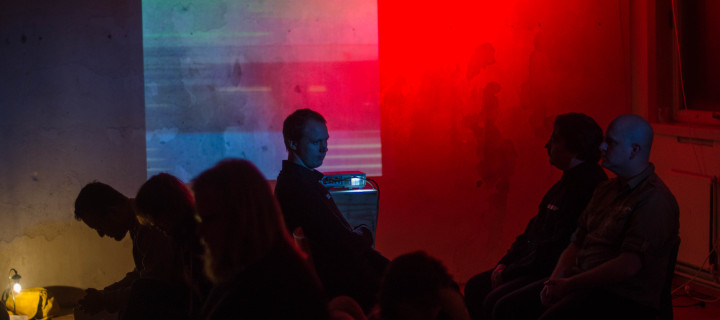Disclaimer: The opinions expressed herein are those of the authors and do not necessarily reflect the official policy or position of Nordiclarp.org or any larp community at large.
Outwardly, the Nordic role-playing scene seems like a tolerant, egalitarian place where everyone is welcome. But the truth is that we are so busy being equal, that we fail to see excellence, and are downright fearful of elitism. Our fear of saying out loud that some role-players are better than others fosters secret social structures, where people are included or excluded depending on how well-connected they are.
There’s a taboo in Danish role-playing. On the surface it’s about openness, tolerance, and equality, but in reality I believe it boils down to the infamous Law of Jante, the first paragraph of which says: “You’re not to think you are anything special”.
Back in the days of yore, when I started role-playing, conventions still held competitions about who was the best role-player. As a matter of fact, I once made it to the second round in such a contest. A good role-player was defined as somebody who could not only rack in loads of XP (experience points), but was also capable of doing some degree of acting. It was up to the gamemaster to decide if you lived up to these criteria.
Somehow along the line, these competitions died out. ‘Being a good role-player is not about winning or losing’ became the general approach in the tradition I belonged to – and actually, I had to agree. Once free-form became a norm at conventions, counting XP became meaningless. Role-playing became less about the game, and more about immersion. A good game should be about the individual experience of the player: How the story and the setting moved you, what the chemistry between the players were like, what you took away from the experience.
In addition to this, a lot of role-players came from backgrounds where they had been more or less ostracised or even traumatised for lack of social skills. If being a good role-player was no longer just about counting XP, the competitions could have come very close to popularity contests. We didn’t want that.
The Gamemaster of Doom
In the 1990s, the general consensus was that everyone was welcome. “Everyone can role-play”, is what people were saying. It didn’t matter if you couldn’t act if your life depended on it. Even people whose social skills were so bad that they consistently ruined everyone else’s experience were welcomed. I remember a specific “Gamemaster of Doom”, who was so bad he would just sit there, leafing through papers, without even speaking to his players. It didn’t matter: We had room for the freaks and the outcasts that had nowhere else to go.
If you were really unlucky, that might be her first and last experience with role-playing.Except for the fact that it quickly became a lie. Because secretly, there was a selection process going on. If you had played with the above mentioned game master, you were not likely to do so again. Why should you? It was not a good experience. No, someone else had to take their turn with him, in the name of tolerance and openness. Sadly, said person would usually be the unknowing outsider, who did not yet have her social network to warn her. If you were really unlucky, that might be her first and last experience with role-playing.
As I got to know more about the other people who played role-playing games, I got better at knowing whom to avoid. But perhaps more importantly, I got to know those people who had a reputation for delivering. At conventions they were gamemasters, writers, and players. At larps, they were organisers or players.
These were people who could take an otherwise mediocre scenario and boost it so thoroughly that it became not just a good experience, but actually unforgettable. They were dynamos in their own right. At conventions, you would amble over to stand next to them, hoping to be put in the same group. At larps you could do even better, if you had the nerve: Why not phone them up beforehand and ask for your character to be a sister, a close friend, or even a lover?
The system of nepotism favoured people who were in the know. People who were already well-connected, and who weren’t afraid of asking for favours. People like me.
The Good and the Bad
The fact of the matter is that some role-players are better than others. When people ask me why I role-play, I usually say: For my own sake. Not for an audience, not to impress anyone. Just for the experience. However, this is not the entire truth. We are each-other’s audience. But more than that: We affect each-other’s experiences in good ways and bad ways. A good role-player knows this, and takes that responsibility seriously.
Some people are bad role-players, and some people are good ones.Even though we don’t want to be open about it, it is not random: Some people are bad role-players, and some people are good ones. Sometimes the bad ones get lucky and manage to get through a game without ruining anything for everyone else, and sometimes the good ones have a bad day. But the trend is clear. In the name of our all-accepting, egalitarian community, we refrain from saying it out loud. But that doesn’t make it any less true.
Why This Is a Problem
Why should I care? I am one of those people who gets to play with all the best. And yet, it bothers me. It bothers me for several reasons.
Obviously it’s a problem that the opportunity to play with really good role-playing partners does not present itself to you unless you happen to know the right people. Often enough we even wind up scaring potentially interested newbies off by letting them play with lousy co-players. If we want our hobby to be characterised as a closed-off society where you have to fight your way in, then we are doing exactly the right thing. However, that doesn’t serve us very well in the long term.
The other problem is for the bad players themselves. Because we refuse to (publicly) acknowledge the good players, we cannot give the bad players the tools to get better. Simply put: We have not analysed what it means to be a good player, so there are no shortcuts. You have to go on spoiling a lot of people’s games before you see the light – provided you ever will. No-one will even tell you why they only play with you once, they just kind of seem to move on without you.
Solutions, Please!
At present time, I do not have the solutions. However, a good starting point would be to acknowledge the situation. If we were open about who the good players were, it would become much more legitimate for organisers to cast them into particular functions: Why not do the opposite of what we are doing now, and actually make sure that there is at least a few skilled role-players present when running games for newbies?
Similarly, larp organisers who cast solid players who can be counted on for a good delivery in pivotal roles should not be accused of nepotism. They should be applauded for making conscious choices, as they do this to give the rest of the players the best possible experience.
We need to direct our attention towards the good playersFirst and foremost, we need to direct our attention towards the good players. What is it that they do? Most of them tend to be seasoned role-players, with many years of experience. So it is probably not a question of an innate genetic talent, but rather a thoroughly honed skill set.
Currently there is an undergrowth of bloggers who are working on charting what skills a good role-player possesses. Needless to say, it is a difficult chore. We all play for different reasons, and being a casual gamer, you would look for different qualities than an immersionist or a dramatist would (see ‘The three way model‘ for an introduction of these terms).
Mapping Good Role-playing Skills
However, one trait seems to crop up everywhere: Social skills. As Lizzie Stark puts it: “Larp is a social activity”. The same can be said of all role-playing games that aren’t digital (and some that are). This implies something we already knew, but didn’t want to admit: Maybe not everyone is as welcome as we would like to believe. Maybe the same people who lacked the social skills to get through school unscathed find themselves confronted with their shortcomings once again.
Another Anecdote
Good role-players are the people we should be looking up toI’m going to end this article with yet another anecdote – but this time a recent one. I was running a game for some teachers who were interested in using role-playing as a tool, but who needed to be shown what it is. I wanted to give them a good experience, so I asked a friend who is an experienced role-player to join them. Within a very short time, his mere presence managed to escalate the game in a way that none of the others would have been capable of doing. It happened in many ways: By way of imitation, but also because he was able to create action that would beget action. His participation lifted the experience for everyone else.
Pretending that ‘everyone can role-play’ is a huge underselling of the skills that good role-players have. If we want to continue making increasingly complex games, we need players that can measure up to the games. That is something we will only get if we are working consciously towards it.
There is a reason why Danes don’t like to mention that some people are better at what they do than others. We come from an egalitarian society, and we don’t like braggarts. But we have to stop equalling skill with status. What is wrong with being a skilful role-player? Absolutely nothing. Being good at something doesn’t make you an arrogant elitist. More likely, it means that you have invested a lot of time in getting good.
Good role-players are the people we should be looking up to. We need to start seeing them as a resource which should be made available. Not as a hidden discourse. As for the bad role-players: We don’t need to put them down, but we do need to show them the way.






